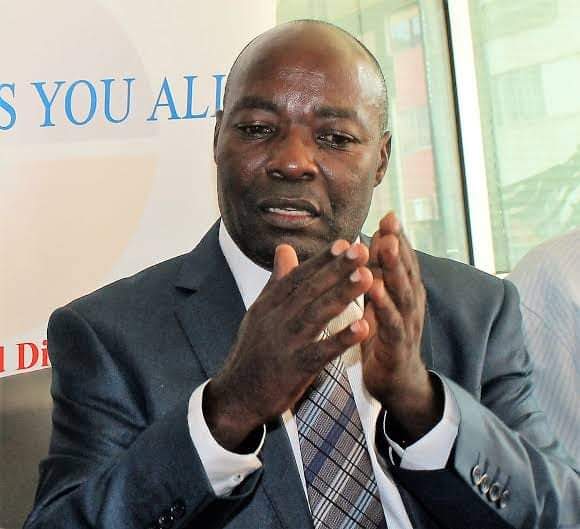By Frank Juuko & Jonathan Mwesigwa S.
Relating the COVID-19 pandemic to food, faith, and politics may quite naturally appear to be a rather extraneous task for one to undertake, yet at the same time, the subject is a thought-provoking one requiring a fair degree of scrutiny, at least—especially given the status quo in Uganda. This article, therefore, attempts to do just that.
The unclouded truth is that the pandemic has affected and lasts to affect every sector of our economy. Worse, there are many cases—both reported and unreported—where the Standard Operating Procedures (SOPs) issued by the World Health Organisation (WHO) and customized by the Government of Uganda (GoU), plus the accompanying “lockdowns” are now the main instigators of its adverse nature.
Akin to Uganda, the COVID-19 crisis continues to worsen in various parts of the world. Several countries are now in a much more difficult position than before. They must re-strategise on how to best combat this deadly plague, while very much keeping in mind the possibility of new demands likely to unfold as their unique circumstances may necessitate. Here, for instance, is a sneak peek by The Economist of 8-14 May 2021 of the situation around the globe:
India “registered its highest daily number of new infections, over 412,000, on May 5th. Half the world’s daily reported cases now come from India, as well as a quarter of deaths.” In South-East Asia, “cases are also rising…with spikes in Cambodia, Laos, Malaysia and Thailand, as well as a handful of locally transmitted cases in Singapore, causing the city to restrict gatherings.”
In the diplomatic world, some officials have, indeed, yielded to using ‘undiplomatic language’ to drive their points home. The Philippines’ foreign minister, Teodoro Locsin “issued a tweet asking China to ‘get the fuck out’ of waters claimed by both countries.”
In the UK, “The entire Indian delegation to the G7 summit in London went into self-isolation when some of their team tested positive for covid-19. The meeting marked a return to face-to-face diplomacy, albeit with distancing measures in place.” In sports, “The Indian Premier League, the world’s biggest cricket tournament, was suspended after several players tested positive.”
In North America, “Canada approved the Pfizer jab for 12–15-year-olds, the first country to endorse a vaccine for children under 16”, and the US “is ready to do the same.” Additionally, in the US, “Connecticut, New Jersey, New York and Pennsylvania will end most limits on the number of people allowed in shops, offices and so on. Rules on face masks and distancing will remain, [and] as an incentive to increase the state’s vaccination rate, New Jersey is offering a free beer to anyone over 21 who gets the first jab in May[!]”
Had it been simply that this crisis was momentary, perhaps a great majority of governments in the developing world would have played deaf to their citizens’ cries of panic, but thank God: spendthrift presidents, first ladies, ministers, local government officials and other public servants all cannot—however much they wish—escape the kind of constriction the virus has had and lasts to have on their livelihoods!
Many in Uganda, for instance, are still obstinately greedy as they continue to salt away public funds—counting borrowed ones, too, and with inflated interest rates—for themselves. Be that as it may, the situation is yet to enable free outlay without raising eyebrows. So they are, in a way, “happily” stuck with stashes of cash, which otherwise would have significantly assisted in alleviating the situation for all of us, not least their families, friends and relations—through food supplies and other necessities of life.
In times like these, what truly clarifies a higher devotion to (economic) materialism than to God, which Russel W. Belk in his 1985 work, Materialism: Trait Aspects of Living in the Material World theorizes to include: non-generosity (a reluctance to give or share possessions with others); envy (desire for others’ possessions); and, indeed, unavoidably, possessiveness (concern about the loss of possessions and a desire for the greater control of ownership)?
Perhaps the “easiest” way to answer this question, and only in part, is to compare notes with many of Uganda’s “benefactors” in Europe and the United States, who for decades have been struggling, and in many ways continue to struggle in this area. Mary Eberstadt, according to one of her reviewers, “paints a provocative and powerful portrait” in her highly rated book, How the West Really Lost God (2014) “of the familial roots of contemporary secularization in” that part of the world hence the rather sharp “declines in [faith as demonstrated by low] church attendance [and individual piety] throughout Europe and the Americas…”
The other feasible response, we think, necessitates examining the effect of (total) lockdowns as sanctioned by the regime on a cross-section of people, whose faith in God would probably have advanced greatly had it not been for the restrictions on “corporate and participatory worship…in an ordered and liturgical space,” not to mention the scarcity of venerable leadership by their prelates. But this is not without precedence in Uganda. Between 1953-55, for instance, several natives of the Buganda Kingdom—one of Uganda’s constituent parts—are reported to have quickly returned to their traditional religion, i.e., the worship of ‘Lubaale’ given the leadership vacuum resulting from the exile of their beloved king, Kabaka Edward Frederick Mutesa II after a sharp disagreement with the then colonial admin. They very much anticipated Lubaale’s intervention in the matter. Never mind that in the 1870s, his great-grandfather, Kabaka Mutesa I had requested for Christian missionaries to inter alia evangelize his country. Well, Mutesa II triumphantly returned home but having to endure a subtle rebuke of his people by the then expatriate Bishop of Uganda, Leslie Wilfrid Brown.
Given their country’s weak economy, Ugandans, in general, awfully remain exposed to the ravaging nature of the coronavirus in much the same way as other people, especially those in the developed world, who have had to endure the crudeness of its wrath rather infinitely.
Yet quite remarkably Ugandans seem to be highly alarmed by the crisis instantly, and just moments later are emboldened enough to make fun of it. This appeal seems to be informed by something else altogether other than some filtrate of their religious beliefs, whatever their kind. Nor is it just that they are unaware of the status quo in the world’s superpowers, chiefly China and the US, as to tellingly compare and contrast their devastation to Uganda’s.
Whatever the case might be, they can only observe the SOPs and “trust” what “their” government has to say about the vaccines, but only for so long. On the contrary, they seem to very much be yearning for a quick reversal of the various anti-corona virus policies regardless of the degree of acclaim or embarrassment to Mr Yoweri Kaguta Museveni’s regime.
Schemes purportedly designed for them by the one man’s regime towards managing the present disaster are, in fact, pretty far from satisfactorily providing a conducive environment that would: guarantee their socio-economic welfare; foil their hunger and starvation, lessen crime-related risks in their communities tended to emerge from situations of hopelessness, let alone improve their already petite public confidence in their (mis)leaders.
During the first wave of the contagion, for example, Ugandans were very much obliged to isolate themselves for nearly half a year. So, a great sum of “non-essential workers” amongst them had to abstain from work, and sadly, they could hardly earn a penny for their own fending as well as that of their dependents. Despite the overwhelming goodwill from given individuals, NGOs, corporate entities, religious organisations, and traditional or cultural institutions—in terms of various relief items, especially foodstuffs—the government still failed to supply the same to its people, and, of course, it turned into a scandalous affair!
Last September the Science Direct World Development Journal and ResearchGate published an insightful study that sought to assess the COVID-19 implications on household income and food security in Kenya and Uganda. The study revealed that in both countries: (i) more than two-thirds of households experienced income shocks and worsened food security; (ii) food security outcomes were worse among the income poor and households dependent on labour income; (iii) labour-dependent and income poor households employed food-based coping strategies; and (iv) membership in savings groups was more likely to mitigate member’s income shocks than the National Social Security Fund[s].
The GoU, as usual, bluffed about providing food relief, i.e., rations of 6kg of maize flour per person, 3kg of beans per person, and salt to “vulnerable workers, particularly those whose daily activities would be affected by the lockdown, in a way of extending social protection to vulnerable sections of the population [totalling about 1.5 million people—representing of 3.2% of 46 million Ugandans]!”
The lactating mothers and the sick nation were each to receive 2kgs of powdered milk and 2kgs of sugar. Indeed, as anticipated, “Majority of vulnerable households [outside the districts of Kampala, Mukono and Wakiso],” according to its COVID-19 Interventions Report, FY 2019/20 by the Ministry of Finance, Planning and Economic Development “did not benefit from the food donations including many urban and rural dwellers”. Only God knows what happened to the UGX 1.829 billion released to the Office of the Prime Minister for this purpose, and how the remaining 96.8% Ugandans lasted!
Finally, our case does not markedly differ from that of the Filipinos. Because of the COVID-19 precautions, many (most?) are confined. “So a recent sprouting of hundreds of local food banks,” The Economist conveyed “meant to keep their hunger at bay should, on the face of it, be widely welcomed. Instead, it has stirred up a storm of political controversy…the pantries are…a threat to elected politicians, who would prefer to preserve a monopoly on handing out goodies to voters near election time…[and hoping] to curry favour with voters.”
Uganda’s status quo further waned as many egocentric politicians took the prospects of the 2021 electoral politics season presented in good stride, albeit with utter impunity. We witnessed, just like the rest of the world, a rather excessive flouting of the SOPs linked to public assemblies of any kind by the very elements behind their enactment, but also purporting to observe them—not to mention the gross violation of their opponents’ human rights and freedoms.
Such fickleness!
The writers are policy analysts.
franklinjuuko@gmail.com
jmwesigwas@gmail.com
Do you want to share a story, comment or opinion regarding this story or others, Email us at newsdayuganda@gmail.com Tel/WhatsApp........0726054858





Discussion about this post